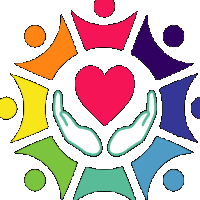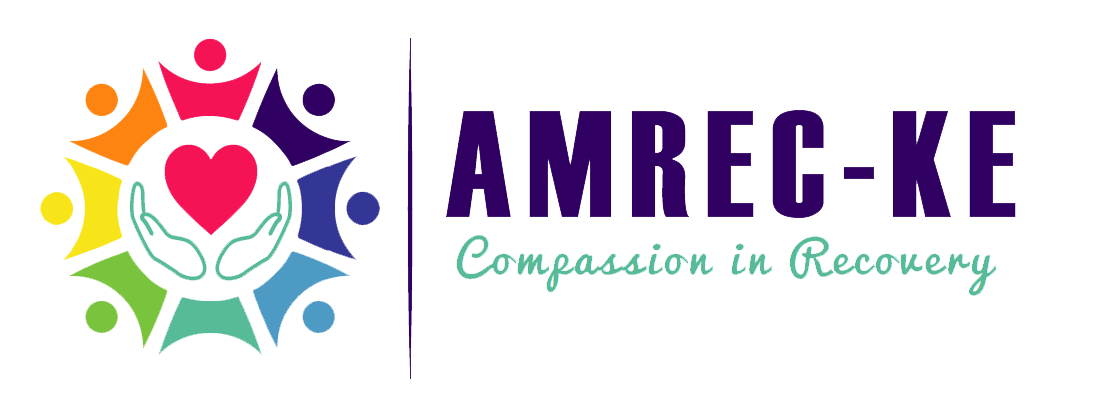

According to WHO, a mental health disorder is characterized by clinically significant disturbances in an individual’s cognition, emotional regulation, or behavior. It is usually associated with distress or impairment in critical areas of functioning.
The American Psychiatric Association has several definitions of mental disorders in the DSM-5 that align with these 5 factors:
- A behavioral or psychological syndrome or pattern occurs in an individual.
- Reflects an underlying psychobiological dysfunction.
- The consequences of these are clinically significant distress such as painful symptoms or impairment in one or more essential areas of functioning
- It must not be merely an expected response to everyday stressors and losses (eg. the loss of a loved one) or a culturally sanctioned response to a particular event (eg. trance states in religious rituals)
- Primarily a result of social deviance or conflicts with society
Mental illness can begin manifesting itself at any age, from childhood through later adult years, but most cases begin earlier in life. About 1 in 5 adults has a mental illness in any given year. The effects of mental illness can be temporary or long-lasting. Below are (but not limited to ) examples of mental disorders.

Types of Mental health disorders
- Anxiety disorders: according to the DSMV, anxiety disorders include disorders that share features of excessive fear and anxiety-related behavioral disturbances. Fear is an emotional response to a real or perceived threat. Anxiety is the anticipation of future threats.
2. Bipolar affective disorder: Bipolar is a type of mood disorder, previously referred to as ‘manic depression. A person with bipolar disorder experiences episodes of mania (elation) and depression. The person may or may not experience psychotic symptoms. Environmental stressors can also trigger episodes of this mental illness.
3. Depressive disorders: these are mood disorders characterized by a lowering of mood, loss of interest and enjoyment, and reduced energy. It is not just feeling sad. There are different types and symptoms of depression. Symptoms of depression can lead to an increased risk of suicidal thoughts or behaviors.
4. Dissociation and dissociative disorders: Dissociative disorders are characterized by a disruption of and/or discontinuity in the normal integration of consciousness, memory, identity, emotion, perception, body, representation, motor control, and behavior. Dissociation is a mental process where a person disconnects from their thoughts, feelings, memories, or sense of identity.
5. Eating disorders: eating disorders are characterized by a persistent disturbance of eating or eating-related behavior that results in the altered consumption or absorption of food and that significantly impairs physical health or psychosocial functioning. The symptoms or behaviors result in significant risk or damage to health, significant distress, or significant impairment of functioning.
6. Obsessive-compulsive disorder: OCD is characterized by obsession and compulsions. Obsessions are recurrent and persistent thoughts, urges, or images that are experienced as intrusive and unwanted. Compulsions are repetitive behaviors or mental acts that an individual feels driven to perform in response to an obsession or according to rules that an individual be applied rigidly.
7. Personality disorders: a personality disorder is an enduring pattern of inner experiences and behavior that deviates markedly from the expectations of the individual`s culture, is pervasive and inflexible, has an onset in adolescence or early adulthood, is stable over time, and leads to distress or impairment.
8. Schizophrenia: schizophrenia spectrum is defined by abnormalities in one or more of the following domains: delusions, hallucinations, disorganized thinking( speech), grossly disorganized or abnormal motor behavior (including catatonia), and negative symptoms. Symptoms of schizophrenia vary widely but may include hallucinations, delusions, thought disorder, social withdrawal, lack of motivation, and impaired thinking and memory. People with schizophrenia have a high risk of suicide. Schizophrenia is not a split personality.
9. Neurodevelopmental disorders: neurodevelopmental disorders are a group of conditions with onset in the developmental period. The disorder typically manifests early in development, often before the child enters grade school, and dare characterized by developmental deficits that produce impairments of personal, social, academic it occupational functioning. Neurodevelopmental disorders include disorders of intellectual development, autism spectrum disorder, and attention deficit hyperactivity disorder (ADHD) amongst others.

Causes of mental illnesses
- Inherited traits: Mental illness is more common in people whose blood relatives also have a mental illness. Certain genes may increase your risk of developing a mental illness, and your life situation may trigger it.
- Environmental exposures before birth: Exposure to environmental stressors, inflammatory conditions, toxins, alcohol, or drugs while in the womb can sometimes be linked to mental illness.
- Brain chemistry: Neurotransmitters are naturally occurring brain chemicals that carry signals to other parts of your brain and body. When the neural networks involving these chemicals are impaired, the function of nerve receptors and nerve systems change, leading to depression and other emotional disorders.

Risk factors
Certain factors (but not limited to) may increase your risk of developing a mental illness, including:
- A history of mental illness in a blood relative, such as a parent or sibling
- Stressful life situations, such as financial problems, a loved one’s death, or a divorce
- An ongoing (chronic) medical condition, such as diabetes
- Brain damage as a result of a serious injury (traumatic brain injury), such as a violent blow to the head
- Traumatic experiences, such as military combat or assault
- Use of alcohol or recreational drugs
- A childhood history of abuse or neglect
- Few friends or few healthy relationships
- A previous mental illness.

Complications
Untreated mental illness can cause severe emotional, behavioral, and physical health problems. Complications sometimes linked to mental illness include:
- Unhappiness and decreased enjoyment of life
- Family conflicts
- Relationship difficulties
- Social isolation
- Problems with tobacco, alcohol, and other drugs
- Missed work or school, or other problems related to work or school
- Legal and financial problems
- Poverty and homelessness
- Self-harm and harm to others, including suicide or homicide
- The weakened immune system, so your body has a hard time resisting infections
- Heart disease and other medical conditions

Prevention
There’s no sure way to prevent mental illness. However, if you have a mental illness, taking steps to control stress, increase your resilience, and boost low self-esteem, may help keep your symptoms under control.
Follow these steps:
- Pay attention to warning signs: Work with your doctor or therapist to learn what might trigger your symptoms. Make a plan so that you know what to do if symptoms return. Contact your doctor or therapist if you notice any changes in symptoms or how you feel. Consider involving family members or friends to watch for warning signs.
- Get routine medical care: Don’t neglect checkups or skip visits to your primary care provider, especially if you aren’t feeling well. You may have a new health problem that needs to be treated, or you may be experiencing side effects of medication.
- Get help when you need it: Mental health conditions can be harder to treat if you wait until symptoms get worse. Long-term maintenance treatment also may help prevent a relapse of symptoms.
- Take good care of yourself: Sufficient sleep, healthy eating, and regular physical activity are important. Try to maintain a regular schedule. Talk to your primary care provider if you have trouble sleeping or if you have questions about diet and physical activity.
Getting Help

Follow us on our social media handles
References
Stein, D. J., Phillips, K. A., Bolton, D., Fulford, W. M., Sadler, J. Z., & Kendler, K. S. (2010). What is a Mental/Psychiatric Disorder? From DSM-IV to DSM-V. Psychological medicine, 40(11), 1759. https://doi.org/10.1017/S0033291709992261
American Psychiatric Association. (2013). Diagnostic and statistical manual of mental disorders (5th ed.). https://doi.org/10.1176/appi.books.9780890425596
By Lemu Wanjiku,
Counselling Psychologist,
AMREC Kenya.

